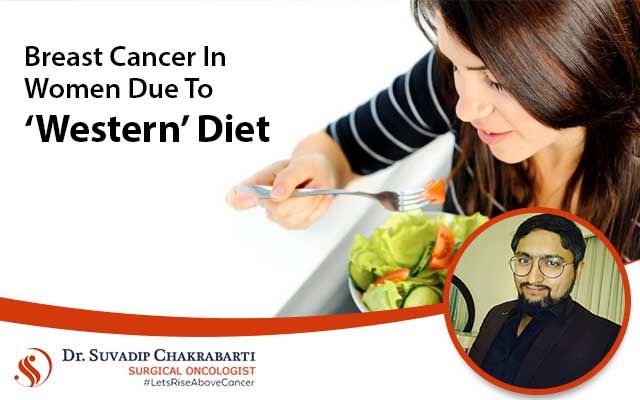Breast cancer is the most common kind of cancer in women worldwide. According to the World Health Organization, over 2.3 million women were diagnosed with breast cancer in 2020, with 6.85 lakh deaths worldwide; 7.8 million women were recognized as survivors by 2020, making it the world’s most prevalent malignancy, says Dr Suvadip Chakrabarti, a breast cancer surgeon in Kolkata.
A study has identified smoking and alcohol consumption as two main risk factors for breast cancer. A Western diet, rich in ultra-processed foods, high-sugar, harmful fats and chemicals has also been linked to the condition.
Breast Cancer, Inflammation & Food
Inflammation occurs when white blood cells and their metabolites react to foreign pathogenic infections to defend the body. A slew of new studies have demonstrated that both acute and chronic inflammations are to blame for various health problems, including breast cancer.
Inflammatory diets include foods high in transfat, processed meat, sugar, chemical preservatives and synthetic colors. A whole food-based balanced diet rich in fruits, green vegetables, whole grains, lean protein, colorful other veggies and probiotics, on the other hand, is anti-inflammatory.
However, we must keep in mind that breast cancer is induced by several causes, one of which is junk food intake, says the breast cancer doctor in Kolkata.
What You Should Include On Your Plate
A healthy anti-inflammatory diet includes a range of nourishing whole foods. Green leafy vegetables are essential components of an anti-inflammatory diet. In India, spinach, cabbage, mustard green, red cabbage, fenugreek and colocasia are plentiful and strong in folate, antioxidants and iron – all of which have anti-inflammatory qualities. Anti-cancer antioxidants such as lutein, beta carotene and zeaxanthin have been linked to a lower risk of developing breast cancer.
Salmon, basa, mackerel and sardines are the following items on an anti-inflammatory diet list. These are high in omega-3 fatty acids, which help to reduce inflammation and oxidative stress damage. These fish are particularly abundant in selenium, an antioxidant mineral that has been linked to a lower risk of breast cancer, says the specialist of breast cancer surgery in Kolkata.
Berries and citrus fruits are two typical anti-inflammatory meals that include important antioxidants, including Vitamin C, anthocyanin and flavonoids. These antioxidants have been found to protect against cellular damage, cancer cell growth and progression. In addition to Vitamin C, Berries include antioxidants such as quercetin, hesperetin and naringenin, which are anti-inflammatory.
Cruciferous vegetables like cabbage, broccoli and cauliflower are also high in anti-inflammatory compounds that minimize the risk of breast cancer. Cruciferous vegetables include glucosinolate chemicals that have anti-cancer effects, says the breast cancer doctor in Kolkata.
Inflammatory foods such as deep-fried meals, processed meat, refined grains, alcohol and sugary beverages should also be avoided or limited. Regular physical exercise, enough sleep, stress management and work-life balance are all suggested and a nutritious, whole-food-based balanced diet helps to maintain women’s overall well-being.
Cancer has a complicated aetiology with several contributing variables. However, a healthy eating routine that includes fatty fish, vegetables, whole fruits and probiotics can help lessen the incidence of breast cancer in women while also ensuring optimal nutritional conditions, says the breast cancer surgeon in Kolkata.

